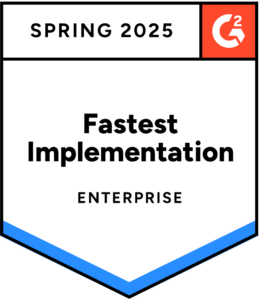What the Instant Gratification Economy Means for Your Office of Finance
Blog post
Share
In an increasingly complex world, finance leaders are being counted on to meet their organization’s demands for efficiency, innovation, and business Patience was long considered a virtue, but today it seems more like an afterthought. We demand immediate responses to our instant messages. To avoid waiting in line, we order coffee on our phone so it’s ready as soon as we walk in the door. We record TV shows so we can skip commercials when we watch them later. We expect retailers to deliver packages in two days or less. Humans appear to be hard-wired to want immediate payoffs, and continuous advancements in technology have made instant gratification more intense.
Some of the first businesses to respond to the need for immediacy were startups such as Uber, GrubHub, and InstaCart. These companies are now each worth billions of dollars. Established brands have had to follow suit or risk consumer backlash. After all, if InstaCart can deliver groceries in an hour, why does the cable guy need a four-hour window?
Changing consumer expectations has also affected business-to-business commerce. Information, for example, is moving faster than ever across computer systems. No one wants to wait weeks, or even days, for a security patch or the implementation of software.
But there is a dark side to the “gotta have it right now” mentality. It becomes an issue when people start to forget about the future. In business, this attitude is reflected in the obsession with short-term profits at the expense of creating long-term value. Investments in research and development, technology, equipment, and worker training often get sacrificed to meet today’s financial goals.
Even in today’s fast-paced world, “playing the long game” so to speak, still matters. There is general agreement that delayed gratification, self-discipline, persistence — call it what you like — is a good predictor of long-term success.
Have you considered how customer behavior and cultural shifts are impacting your business? How are you responding to more urgent demands from customers, investors, or internal stakeholders? What about your employees? How have shortened attention spans affected your ability to complete projects?
How Did We Get Here?
Psychologists have studied the “spend now, save later” mentality for years. Part of this desire is rooted in evolution. In prehistoric human environments, the availability of food was uncertain. Humans survived by seizing immediate rewards.
In a series of experiments at Stanford University starting in the 1960s, Dr. Walter Mischel led a research team that presented preschool-age children with treats — pretzels, cookies, marshmallows. The kids were given two choices: When the researcher left the room, the children could either eat the treat or wait until the researcher returned and receive a second treat as a reward.
Mischel found that some children were better than others at deploying strategies, such as covering their eyes, to earn the reward. In the 1980s, Dr. Mischel and his research partners followed up with about 100 parents whose children had participated in the original studies. They found a surprising result — the children who had resisted the urge to eat the first treat tended to have higher SAT scores and were more emotionally well-adjusted in some ways than those who had given in to impulse. Mischel, who died in 2018, was best known for the marshmallow test.
Predicting human behavior has been a constant source of inquiry. More recently, the fields of psychology, economics, and neuroscience have converged into the unified discipline of neuroeconomics to investigate the mental and neural processes that drive economic decision-making.
In 2004, researchers at four universities announced that they had found that two areas of the brain appear to compete for control when a person attempts to balance near-term rewards with long-term goals. The study showed that decisions involving the possibility of immediate reward activated parts of the brain influenced heavily by neural systems associated with emotion. In contrast, all the decisions the students made — whether short- or long-term — activated brain systems that are associated with abstract reasoning.
“Our emotional brain has a hard time imagining the future, even though our logical brain clearly sees the future consequences of our current actions,” said David Laibson, professor of economics at Harvard University, in a press release issued by Princeton University. “Our emotional brain wants to max out the credit card, order dessert, and smoke a cigarette. Our logical brain knows we should save for retirement, go for a jog, and quit smoking. To understand why we feel internally conflicted, it will help to know how myopic and forward-looking brain systems value rewards and how these systems talk to one another.”
What This Means for You
The need for immediacy manifests itself in the desire for fast growth over long-term sustainable growth. In the business community, there’s a term for this philosophy: short-termism. It’s pervasive among publicly traded companies that face investor pressure to consistently hit quarterly financial targets. But shortsightedness is also present in privately held companies.
No matter the size of your business, there’s constant tension between investing in long-term growth or short-term revenue-generating activities.
Legendary investor Warren Buffett is one of the biggest critics of short-termism. In fact, the billionaire’s long-term investment perspective is at the core of the business advice that he dispenses in his popular annual letters to Berkshire Hathaway shareholders.
CNBC pored through the letters and pulled out nine business lessons, but two in particular resonate:
- Keep your focus: Don’t rush to buy other businesses out of boredom. “The thrill of the chase blinded the pursuers to the consequences of the catch.”
- Keep calm in the face of volatility: Buffet says earnings fluctuations don’t bother him. He would rather earn a “lumpy” 15 percent over time than a “smooth” 12 percent.
The Power of Delayed Gratification
In an interview published in Inc. Magazine, Craig Smith, who at the time was president of HomeAdvisor, a digital marketplace for home services, talked about the importance of having a long-term vision. He said it took 17 years for the company to grow to $500 million, large enough to acquire their main competitor, Angie’s List.
The keys were bringing on board quality contractors and having a long-term view of marketing. “If you build a core base of loyal fans who really love your business and your product, you won’t have to grind to get through every quarter,” Smith said.
Similarly, in his very first letter to shareholders in 1997, Jeff Bezos laid out his approach to business and running Amazon. He summed up his philosophy in a six-word headline: “It’s All About the Long Term.” At the time, Amazon had just 256 employees and annual revenues of less than $16 million.
Bezos said he believed “the fundamental measure” of Amazon’s success would be the shareholder value it creates over the long term, not quick profits or tomorrow’s stock price. For emphasis, he put “long term” in italics. To create value over time, Amazon would focus on market leadership, which would generate more revenue, more profits, and higher returns on invested capital.
Bezos made it clear that investors who didn’t agree with his approach might want to look elsewhere.
When Amazon went public, its stock was priced at $18 a share. Today its stock trades at more than $1,600 a share. Wouldn’t we all have wanted to be in on this from the beginning and held onto those shares? You may have missed your chance with this one, but you can still avoid short-termism in your current decision-making.
What Does This Mean for the Office of Finance?
Businesses need the office of finance to be integrated into their decision-making process. To do that, finance needs to spend less effort on general accounting, financial reporting, and traditional transactional processes—such as accounts payable and accounts receivable—while still maintaining the integrity of the numbers.
The office of finance needs new and innovative thinking, together with a willingness to explore new technologies and ways of working. AI-powered software tools and collaboration applications are available to provide far better insight and improve performance. New technology requires a shift in culture and attitude, but the long-term payoff is there.
Bezos likes to remind investors in his annual letter that taking a longer view of things also fosters an environment of risk-taking and failure.
“Long-term thinking levers our existing abilities and lets us do new things we couldn’t otherwise contemplate. It supports the failure and iteration required for invention, and it frees us to pioneer in unexplored spaces.” Considering Amazon’s success, it’s hard to argue with him.






